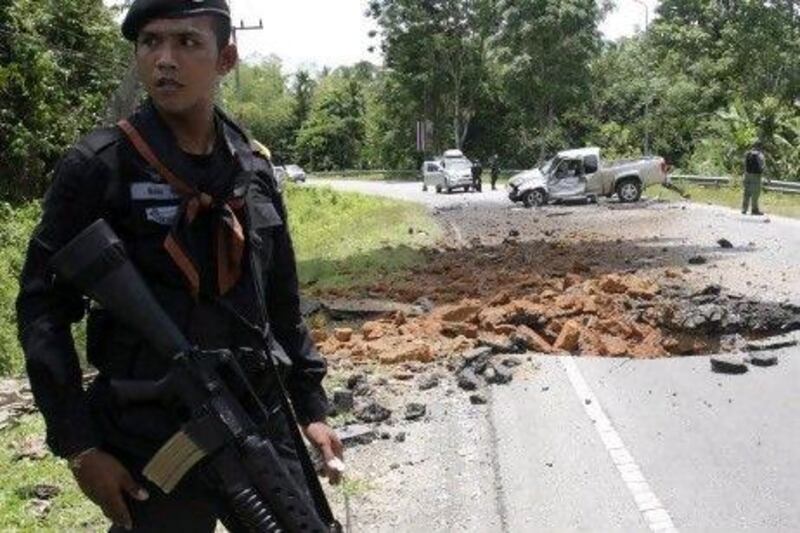BANGKOK // Thailand has approved a Dh246 million compensation package for victims of an insurgency in the Muslim-majority deep south that has left thousands dead over the past eight years, officials said.
The families of people killed in the conflict will each receive 500,000 baht (Dh59,300), or 1.5 million baht if government officials were responsible, the justice minister, Pracha Promnog, said after the cabinet agreed on the measure.
"We hope it will make the situation in the south more peaceful and we hope it will be sufficient because some of them have received compensation before," Mr Pracha said.
The offer is less than the 7.5 million baht that the government has said it will pay each family of victims killed in political violence during a series of rival protests in Bangkok since 2005.
The families of more than 4,000 civilians who were killed and roughly 6,000 who were wounded would be eligible, along with those of 1,056 government officials who lost their lives, Pracha said.
Militant suspects who were arrested and jailed but later freed because their cases were dismissed by the courts would also receive money, Mr Pracha said.
"We expect to deliver first payment in the next two weeks."
The shadowy insurgency, without clearly stated aims, has plagued Thailand's far south since 2004, claiming more than 5,000 lives, both Buddhist and Muslim, with near-daily bomb or gun attacks.
A Muslim leader in Yala province expressed doubt that the compensation offer would bring an end to the violence.
"Remedies are part of the solution but the government has to clearly identify the root of the problem," Ma Samae, 54, said.
"Personally I think it's hard to end the southern unrest because most residents are Muslim but the leaders are not."





